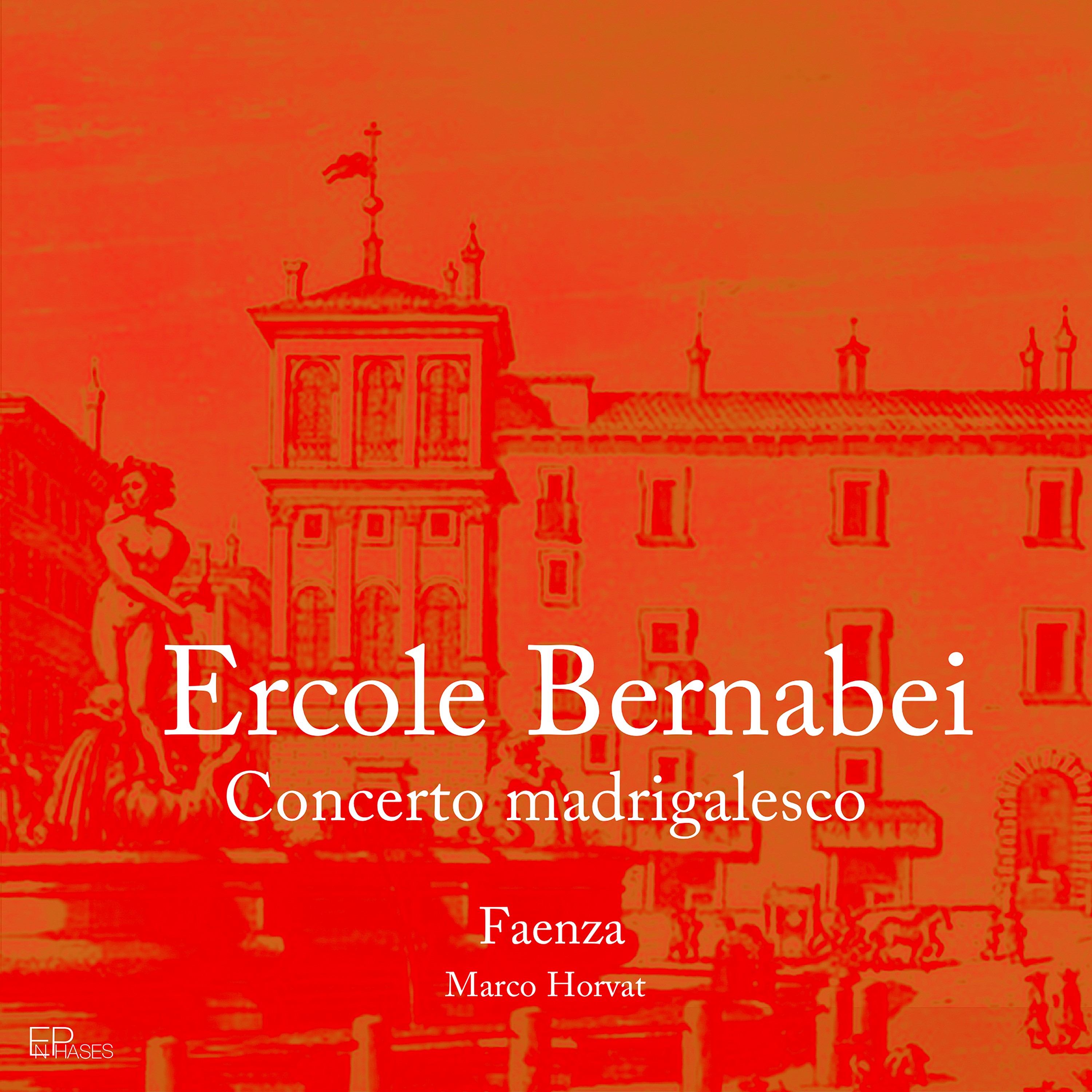Concerto madrigalesco

Ercole Bernabei (1622/1687)
CONCERTO MADRIGALESCO
FAENZA DIRECTION MARCO HORVAT
Myriam Arbouz - soprano
Marine Fribourg - mezzo-soprano
Andrea Gavagnin - countertenor
Francisco Mañalich - tenor, treble and bass viol
Jan Jeroen Bredewold - bass
Anne-Sophie Eiselé - treble and bass viol, lirone
Eliaz Hercelin - bass viol Marco Horvat - theorbo, archlute, lirone, baroque guitar
Caroline Lieby - harp
Ayumi Nakagawa - harpsichord and organ
LABEL ENPHASES - RELEASED 24/03/2023
Distribution Outhere - ENP010
Registered at: Trédrez-Locquèmeau - 2022
Sound recording / Art direction / Editing:
Franck Jaffrès / Unik Access
Design: Sybille Walter
Printed in Rome in 1669, the fifteen pieces of the Concerto madrigalesco a tre voci diverse by Ercole Bernabei (1622-1687) are here recorded in their entirety for the first time.
Fulminate, begli occhi
Già mi minaccia Amore
Altro frutto non colsi
Preludio (théorbe) : Angelo Michele Bartolotti
Non più strali, ben mio
Non più strali, ben mio
Toccata (clavecin) : Giacomo Simonelli
Perch’io vado lontano
Non merita pietà
Ti lascio, anima mia
Ardo tacito amante
Ch’io non v’ami?
Passacaglie (clavecin) : Bernardo Pasquini
Spira dagl’occhi suoi
Tal’hora intento in un bel volto
Ardo e taccio il mio mal
Bei labbri, io non vi chieggio
Preludio (guitare) : Angelo Michele Bartolotti
Oh se poteste mai (prima parte)
Hor se ’l gelo de gl’anni (seconda parte)
Interviews / Anne-Madeleine Goulet: Director of Research at the CNRS Marco Horvat: Artistic Director of the Faenza Ensemble
Historical background
Why Ercole Bernabei?
Faenza is an ensemble born of the desire to discover and promote forgotten composers, repertoires and performance practices. The recording of Ercole Bernabei's madrigals adds a new stone to this edifice, which always combines research and interpretation.
1. As far as composers are concerned, we devoted a recording to Giulio San Pietro de' Negri, a Milanese musician of great importance, of whom only a few scattered pieces had been recorded until then. We were also the first to discover and release the Airs à quatre parties by Charles Dassoucy, a composer whose music was thought to have been lost.
2. In terms of repertoire, for example, we have unearthed the madrigals of Giovanni Zamboni, whose lute repertoire was all that was known, and given new life to the spiritual parody of court airs with "La Semaine mystique". More recently, we have been interested in the musical settings of La Fontaine's fables in the eighteenth century ("Le Bestiaire fabuleux").
3. As far as performance practices are concerned, that of "singing on the instrument" (singing while accompanying oneself) constitutes the main originality of the ensemble ("Il Giardino di Giulio Caccini", "Le Délire des lyres" in particular). We have also worked on comédies à écriteaux with 'Polichinelle et Orphée aux Enfers' and, in the coming years, we will be tackling the vast field of comic opera in vaudeville, a form that poses serious performance challenges.
How would you describe Bernabei's music?
How did you approach the recording?
Share on your networks!
Follow us on the networks!

